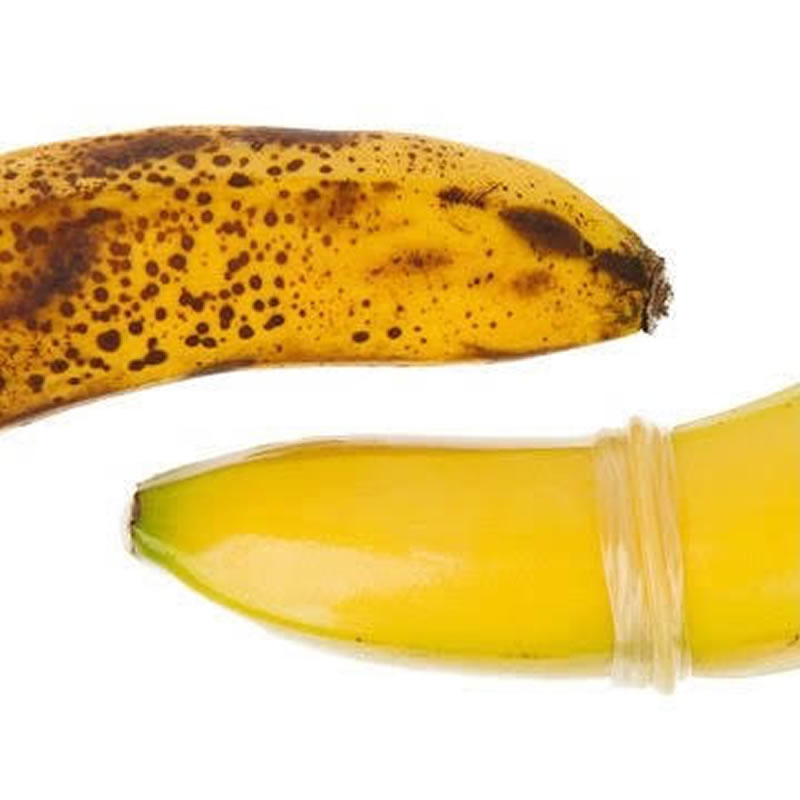Which Banana Would YOU Eat? - Charlotte K.


Description:
A normative view of who qualifies to be a sexual being (i.e., white, male, young, married, commercially attractive, able-bodied, heterosexual, employed, wealthy, and well-endowed) predetermines who receives relevant sex education, who is allowed to express and explore their sexuality, as well as how and where they’re allowed to do so.
Significance:
People with disabilities are often infantialised and positioned as asexual, incapable and/or uninterested in sex, with any observation of their sexuality being closely monitored and documented through a lens of disaster, disease, and dysfunction (Turner, 2020). This affects their sexual access, making it more difficult to access relevant, accessible, and sex-positive information and resources, despite having an increased need for relevant sex education due to their increased vulnerability to sexual abuse and violence (WHO/UNFPA, 2009). The sex education curriculum is centred around the idea of family (a heteronormative concept in itself), which is why the condom on a banana is the only hands-on component of sex taught to students – we are taught that sex is simply a means of reproduction, and that condoms are necessary to avoid pregnancy and STI’s. This is not sex-positive, as sex is so much more than reproduction (which is solely limited to heterosexual people); and it is hardly inclusive as not everybody is interested in penile penetration – whether it be due to personal preference, disability, chronic illness, and/or sexual trauma. Since these individuals don’t exist within the scope of normativity, they are provided with zero guidance on navigating safe and pleasurable sexual interactions. A lack of inclusive sex education is specifically harmful for adolescents with disabilities, as they are more likely to reach adulthood physically, psychologically, and socially ill equipped to navigate sexual intimacy. This leads to sexual isolation, which results in the repression of their sexual feelings, needs, and wants (Shuttleworth, 2007).
Positionality:
I am interested in Disability and Sexuality since the intersection of the two has been neglected in my studies and career, which I believe to be a major problem. The lack of education in this field is harmful for social workers, who often feel unprepared to address the sexuality of their clients, which subsequently harms marginalised individuals, who are unable to voice their sexual needs and concerns (Areskoug-Josefsson et al., 2019).
I have been working as a support worker at a group-based day program for over a year, and as part of our policies and procedures, all staff are required to report any sexualised behaviours we witness. We must also document any precursors, the steps that we took to redirect them away from said behaviours, the outcome of staff responses, and whether they engage in any sexualised behaviour afterwards. This vulnerable information is then distributed to the rest of the workforce; as well as other relevant parties such as the NDIS, behaviour support practitioners, speech pathologists, sex therapists, psychologists, as well as their families and/or various living situations. While we intend to ensure the safety of the participant and those around them, it saddens me knowing that I am personally contributing to the suppression and medicalisation of their sexuality. It was important that I take this subject in order to gain some insight into how I can have appropriate, relevant, and (most importantly) sex-positive conversations around sexuality – rather than suppressing their efforts to express something that is innately human.
Impact:
The sex education curriculum teaches “normal” sex; the idea that sex is solely defined by genital intercourse, with our sexuality being embodied in our genitals, and that the ultimate goal is to achieve perfect performance with the grand crescendo of orgasm (Tepper, 2000). This narrative is harmful to people with disabilities, who are prone to having low sexual self-esteem from not being able to be sexual in a “normal” way (Tepper, 2000). The “gem” that I’m taking away is that there are so many different ways in which people express their sexuality and receive sexual pleasure that are so much bigger than putting a condom on a banana. In order to achieve sexual justice, the sex education curriculum must be rewritten in a way that is comprehensive, accurate, inclusive, and (most importantly) sex-positive. A holistic, strengths-based sexuality model that effectively encompasses the variability of each individual’s sexuality (regardless of their physical, psychological, social, and other contextual differences) is the Circles of Sexuality framework. This model deviates from the traditionally intercourse-centric and pathological approach to sex education, instead focusing on five major components of one’s sexuality (sensuality, intimacy, sexual health and reproduction, sexual identity, and sexualisation), along with a sixth circle which allows one to consider how their personal, cultural, familial, religious, spiritual, and social values contribute to each of the five categories. This model allows the individual to unpack their thoughts and experiences within each domain and reveals what areas they need more education on (Turner et al., 2018).
Wish List:
Ultimately, sexuality is an innate part of the human experience and plays a role in all forms of structural oppression (i.e., ableism, racism, sexism, homophobia, transphobia, ageism, sizeism etc.), which is why we must recognise that the fight for sexual justice is not solely limited to the disability rights movement (Turner et al., 2018). I hope that my artifact inspires viewers to consider sexual justice as a component of social justice that is equally as significant and urgent as any other social justice issue; and that the sexual rights of people with disabilities are just as important as the sexual rights of anyone else.
The fight for sexual justice is far from over, as there is still a gap in recognising sexual pleasure as a fundamental human right and a critical component of sexual health and overall wellbeing (Coleman et al., 2021). An essential element of sexual justice is providing comprehensive, medically accurate sex education (Turner et al., 2018), so it is paramount that we incorporate pleasure into the sex education curriculum if we wish to achieve sexual justice. The absence of pleasure within the sex education curriculum actively hinders sexual development, prohibits inclusive education, and negatively impacts sexual self-esteem and wellbeing (Coleman et al., 2021). Alternatively, incorporating pleasure into the sex education curriculum would support the risk reduction of gender-based sexual violence, promote healthy sexual relationships, celebrate sexual diversity, and encourage the exercising of sexual rights, empowerment, and consent (Coleman et al., 2021).



One Comment
Hi Charlotte, thank you for sharing your point of view about sexuality and disability. You describe it very well with the banana’s metaphor. Your narrative explained very well how the current sex education curriculum perpetuates ableism by excluding diverse expressions of sexuality especially for individuals with disabilities.
The discussion about how the sex education curriculum must be rewritten in a comprehensive and sexually positive way also gives me insight into how poor our current sexual education is. On the other hand, according to Dr. Dilana Schaafsma, an associate lector at the Fontys University of Applied Sciences, the sex education limitation might come from the knowledge about the effective methods for teaching individuals with disabilities, especially intellectual disability. I suggest you also dig deeper into the teaching methods with all the correlated parameters such as guided practice or any teaching model that suits the best sex education curriculum.
Once again, it is great that you discuss this artifact and encourage us to look deeper in the educational sector in our community to encourage sexual justice for people with disabilities. All the best for you and your future projects